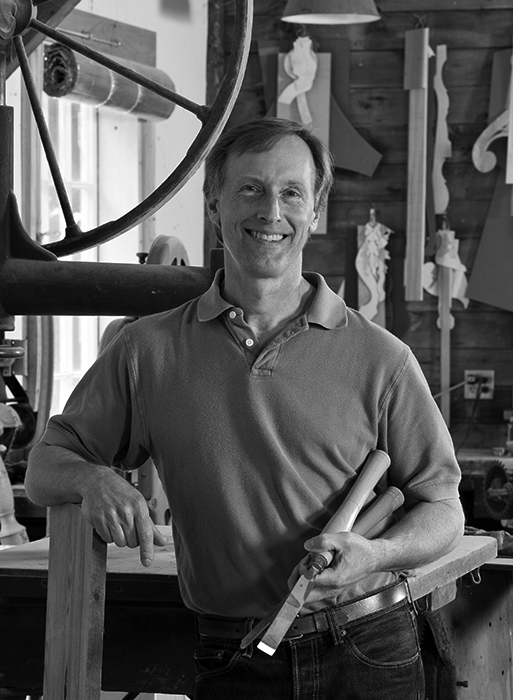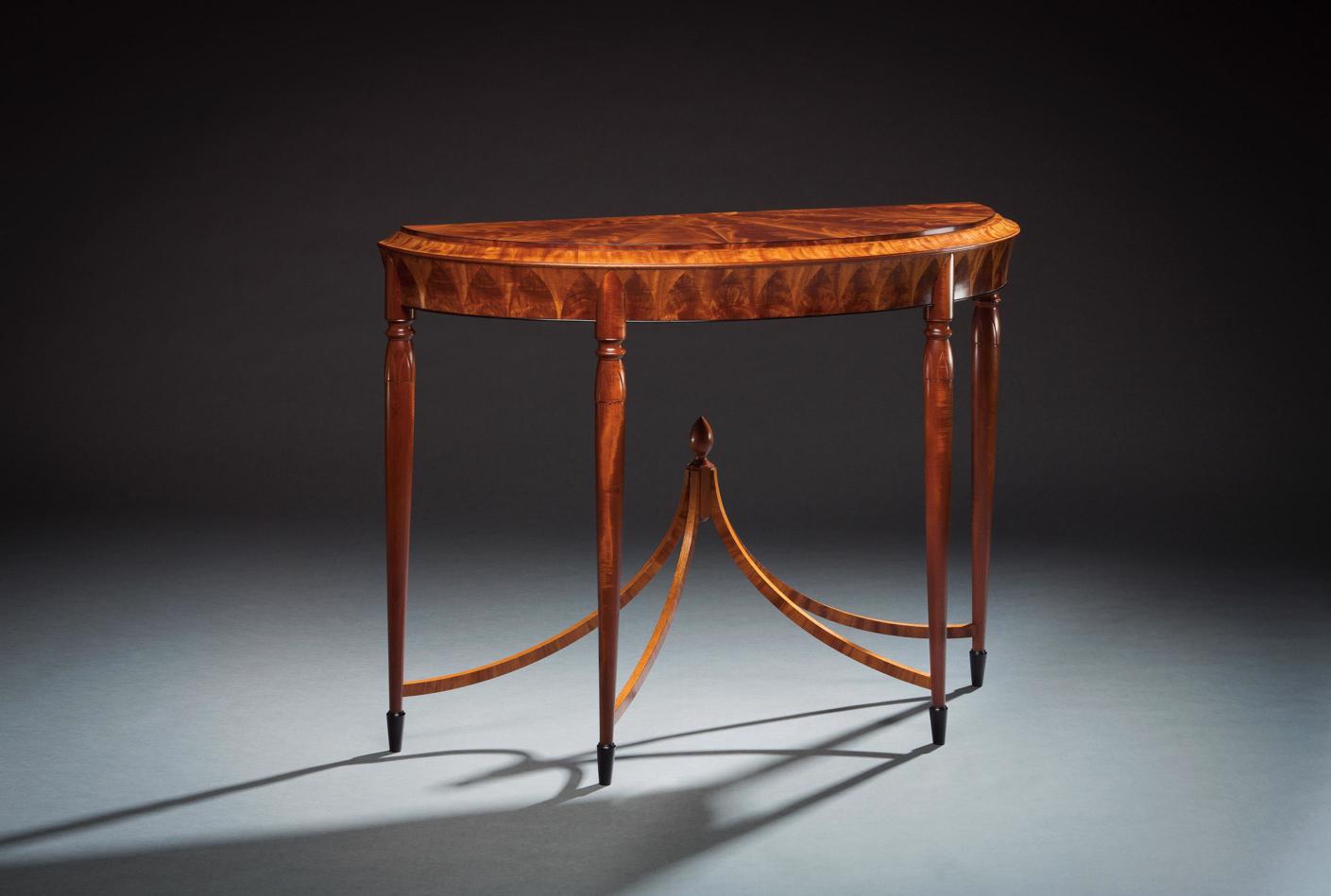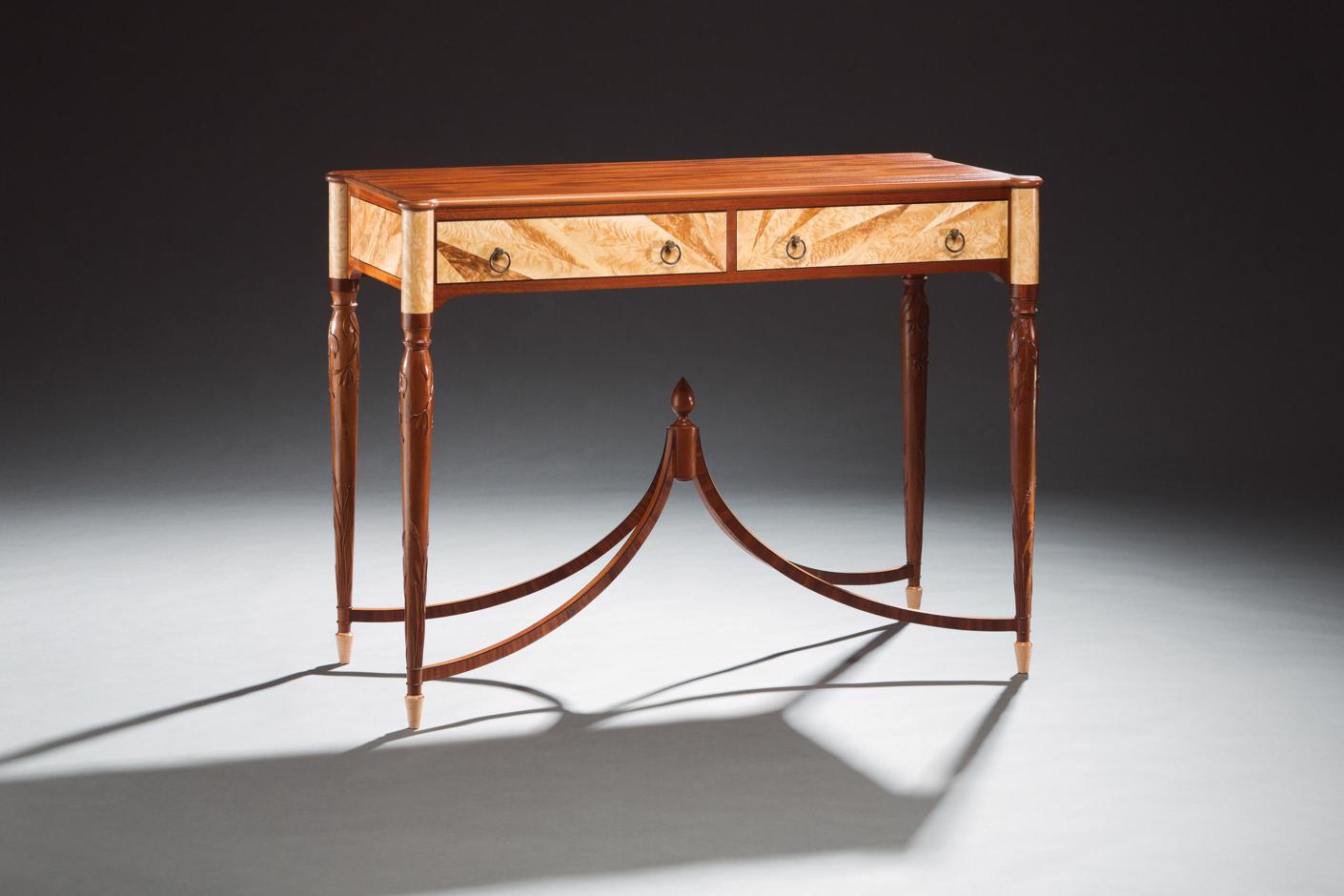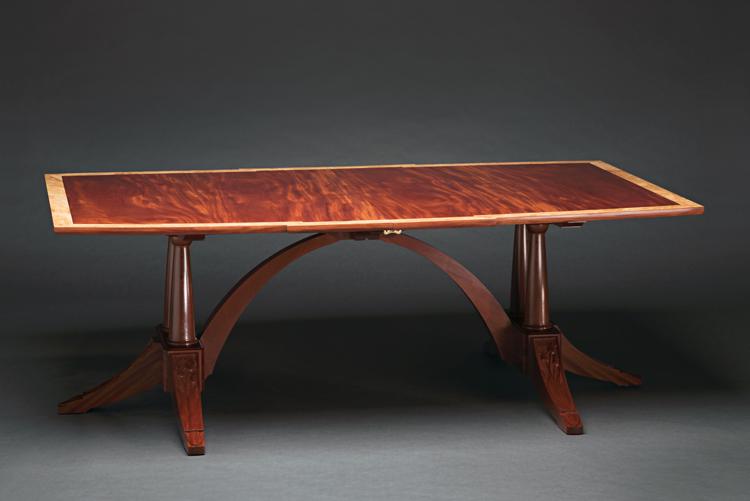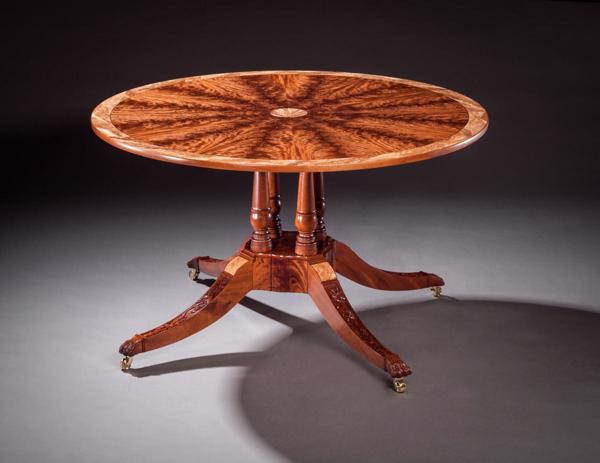

David W. Lamb
The workshop of David W. Lamb, Cabinetmaker builds on a broad training and diverse experiences. Stylistically diverse, all designs reflect the classic traditions of good design principles. Whether Shaker, neo-classical, or modern variations, classical design involves a timeless interaction of elements, as relevant today as it was thousands of years ago.
I have been blessed with many opportunities. My old-world apprenticeship with a renowned European master was one based on tradition, classicism, and integrity in work, design and living. In an intense three-year training, bench work was the focus to train the hand, eye and mind to work in unison and without hesitation. Schooled in one of the leading design schools in the United States, Boston University’s Program in Artisanry expanded my knowledge of technique and opened my mind to design possibilities. During this period of training I was living at Canterbury Shaker Village (NH) where I had my first shop. My friendship with the seven remaining Shaker sisters exposed me to their values as well as their furniture.
The shop, an expanded 100-year-old mill building, located just south of Canterbury Shaker Village, provides a unique working environment that compliments the work being done. The structure and the collection of antique machinery and hand tools create an environment that speaks to craftsmanship, integrity, and continuity with respect to the past. The continuity of the place, process and professionalism forms the foundation from which I aspire to create work in the spirit of the masters.
Of recent significance is the work designed for the series of exhibitions and annual auctions through the New Hampshire Furniture Masters Association. The past twenty-one years have afforded an annual opportunity to work with patrons to develop exciting new ideas that clearly reach back to traditional roots and yet looks forward with material use and design developments and effects that are unmistakably contemporary. Included in this are also the four recent Lambovich commissions done with artist James Aponovich which have received wide critical acclaim.
David W. Lamb's Work
David W. Lamb
The workshop of David W. Lamb, Cabinetmaker builds on a broad training and diverse experiences. Stylistically diverse, all designs reflect the classic traditions of good design principles. Whether Shaker, neo-classical, or modern variations, classical design involves a timeless interaction of elements, as relevant today as it was thousands of years ago.
I have been blessed with many opportunities. My old-world apprenticeship with a renowned European master was one based on tradition, classicism, and integrity in work, design and living. In an intense three-year training, bench work was the focus to train the hand, eye and mind to work in unison and without hesitation. Schooled in one of the leading design schools in the United States, Boston University’s Program in Artisanry expanded my knowledge of technique and opened my mind to design possibilities. During this period of training I was living at Canterbury Shaker Village (NH) where I had my first shop. My friendship with the seven remaining Shaker sisters exposed me to their values as well as their furniture.
The shop, an expanded 100-year-old mill building, located just south of Canterbury Shaker Village, provides a unique working environment that compliments the work being done. The structure and the collection of antique machinery and hand tools create an environment that speaks to craftsmanship, integrity, and continuity with respect to the past. The continuity of the place, process and professionalism forms the foundation from which I aspire to create work in the spirit of the masters.
Of recent significance is the work designed for the series of exhibitions and annual auctions through the New Hampshire Furniture Masters Association. The past twenty-one years have afforded an annual opportunity to work with patrons to develop exciting new ideas that clearly reach back to traditional roots and yet looks forward with material use and design developments and effects that are unmistakably contemporary. Included in this are also the four recent Lambovich commissions done with artist James Aponovich which have received wide critical acclaim.
